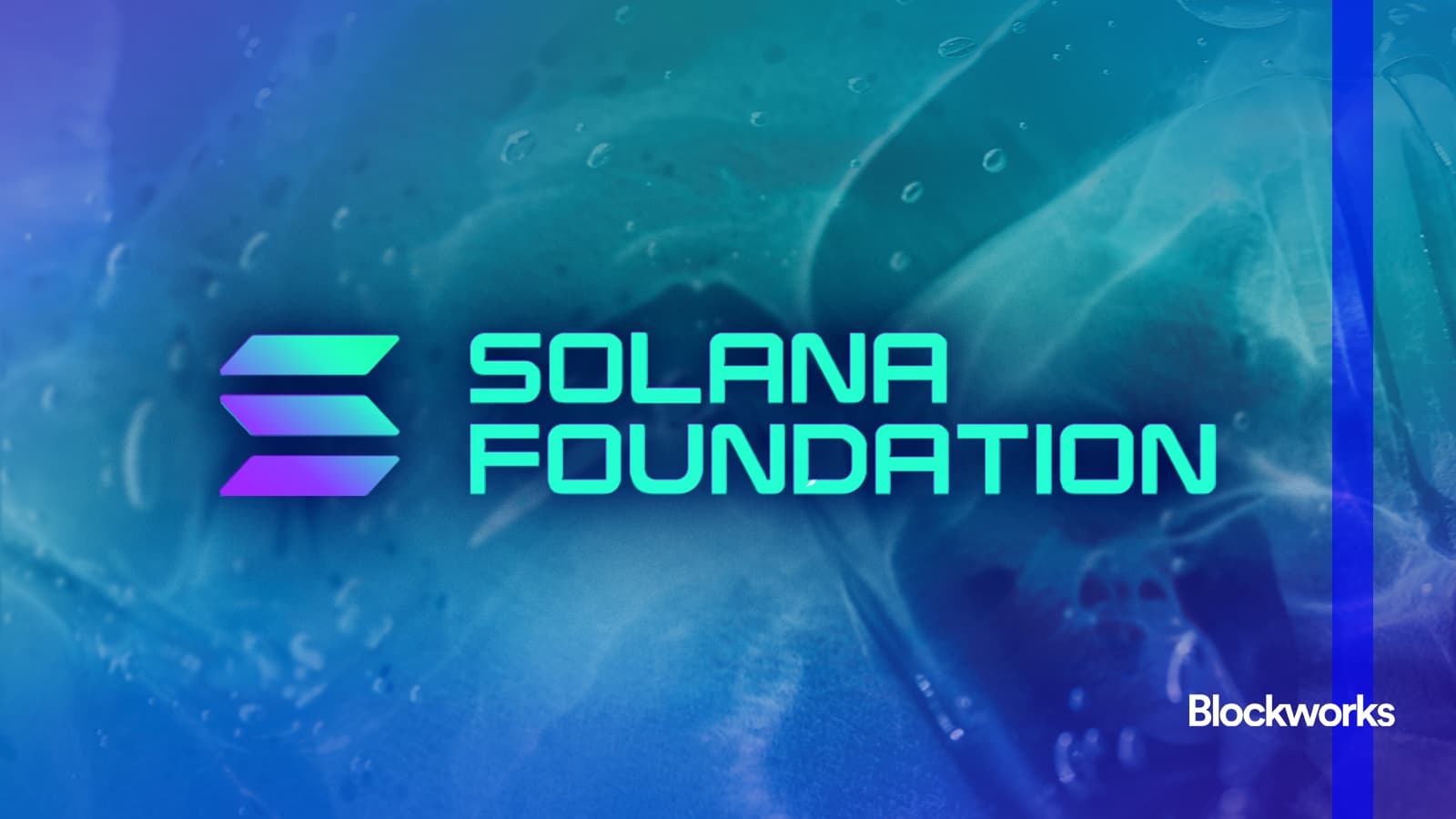Around 150 Solana validators would lose their foundation stake under the new rule, perBlockworks Research estimates

Solana Foundation and ganjalex/Shutterstock and Adobe modified by Blockworks
This is a segment from the Lightspeed newsletter. To read full editions, subscribe.
The Solana Foundation is tightening its leash on the validators receiving its stake.
The Solana Foundation now says that for every new validator added to the Solana Foundation Delegation Program, it will remove three long-standing ones with under 1,000 SOL in external stake. The goal: have fewer validators relying on foundation stake and more earning authentic backing from the community.
Blockworks Research data lead Dan Smith estimated that at current staking levels, around 150 Solana validators would lose their foundation stake under the new rule.
The Solana Foundation has a sizable stash of SOL tokens, and it stakes some of those tokens with smaller validators. Those validators who go through KYC checks and enlist in the program also have some of their voting costs covered for a year. The program has booted participants before: In June 2024, it cut a group of validators found to have been operating private mempools, which can be used for sandwich attacks.
This all may sound like inside baseball, but the delegation program is pretty central to Solana’s validator landscape. Last year, a report from Solana infrastructure shop Helius found 72% of validators receive foundation stake.
Solana validators earn revenue partly through inflation, priority fees, and MEV, which all scale as validators attract more delegated stake. In other words, finding lots of stake is the whole ballgame for validators. By booting validators from the delegation program, the Solana Foundation is forcing validators to either find new sources of stake or potentially go out of business.
The SFDP is a good program for bootstrapping a bigger validator set, but the Solana Foundation keeping some validators afloat obviously can’t last forever. It’s probably healthy for Solana to discourage freeloading.
Still, count this as one of a continuing string of woes for smaller Solana validators. First a drawdown in market activity, now this, then maybe a cut to Solana’s emissions rate down the road.
Jeffrey Albus contributed reporting.
Get the news in your inbox. Explore Blockworks newsletters:
- Blockworks Daily: Unpacking crypto and the markets.
- Empire: Crypto news and analysis to start your day.
- Forward Guidance: The intersection of crypto, macro and policy.
- 0xResearch: Alpha directly in your inbox.
- Lightspeed: All things Solana.
- The Drop: Apps, games, memes and more.
- Supply Shock: Bitcoin, bitcoin, bitcoin.
Mon – Wed, October 13 – 15, 2025
Blockworks’ Digital Asset Summit (DAS) will feature conversations between the builders, allocators, and legislators who will shape the trajectory of the digital asset ecosystem in the US and abroad.
Industry City | Brooklyn, NY
TUES – THURS, JUNE 24 – 26, 2025
Permissionless IV serves as the definitive gathering for crypto’s technical founders, developers, and builders to come together and create the future.If you’re ready to shape the future of crypto, Permissionless IV is where it happens.
SUN – MON, JUN. 22 – 23, 2025
Blockworks and Cracked Labs are teaming up for the third installment of the Permissionless Hackathon, happening June 22–23, 2025 in Brooklyn, NY. This is a 36-hour IRL builder sprint where developers, designers, and creatives ship real projects solving real problems across […]
Research
Ethena Labs is leaping from its flagship synthetic dollar, USDe, to a full product suite—USDtb, iUSDe, and the Arbitrum-based Converge Chain—designed to marry crypto-native yields with TradFi-grade compliance. Our analysis shows how expanding into CME, ETF options, and tokenized Treasuries could lift protocol revenue from sub-$500 million in a bear case to several billion dollars if favorable regulation and institutional adoption align.
news
Breaking headlines across our core coverage categories.
Arch Labs CEO told Blockworks that the team plans to launch a native token, but declined to give details
CEO Mike Silagadze tells Blockworks that the US is “open for business” and why its DeFi bank offering is the first of many










